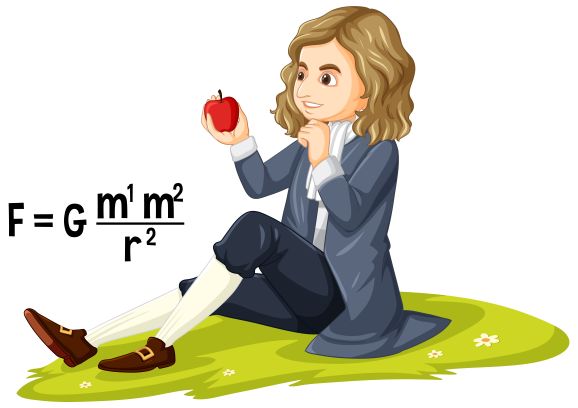
Chapter Overview: Gravitation
This chapter introduces the fundamental concept of gravitation, explaining the universal law of gravitation and its significance in understanding the motion of celestial bodies and objects on Earth. Key topics include gravitational force, free fall, mass, weight, and thrust and pressure.
Gravitation: The force of attraction between any two objects in the universe due to their masses.
Universal Law of Gravitation
Every object in the universe attracts every other object with a force that is directly proportional to the product of their masses and inversely proportional to the square of the distance between them.
Mathematically, it is expressed as: F = G (m₁m₂)/r², where F is the gravitational force, G is the gravitational constant, m₁ and m₂ are masses, and r is the distance between them.
Free Fall
When an object falls towards the Earth under the influence of gravitational force alone, it is said to be in free fall. The acceleration due to gravity (g) on Earth is approximately 9.8 m/s².
Acceleration due to gravity (g): The uniform acceleration produced in a freely falling object due to the gravitational force of the Earth.
Mass and Weight
Mass: The amount of matter contained in an object. It remains constant everywhere.
Weight: The force with which an object is attracted towards the Earth. It varies with the value of g (W = m × g).
Thrust and Pressure
Thrust: The force acting perpendicularly on a surface.
Pressure: The thrust per unit area (P = Thrust/Area). Pressure depends on the area over which the force is distributed.
Pressure: The force exerted per unit area. Its SI unit is Pascal (Pa).
Buoyancy and Archimedes' Principle
Buoyancy is the upward force exerted by a fluid on an object immersed in it. Archimedes' Principle states that the buoyant force is equal to the weight of the displaced fluid.
Relative Density
Relative density is the ratio of the density of a substance to the density of water. It is a dimensionless quantity.
Relative Density: The ratio of the density of a substance to the density of water at 4°C.
